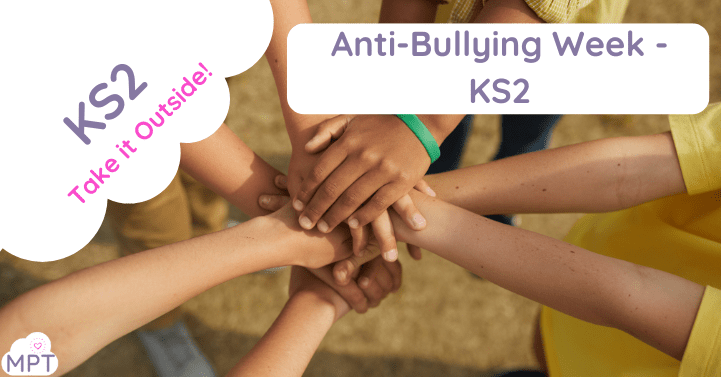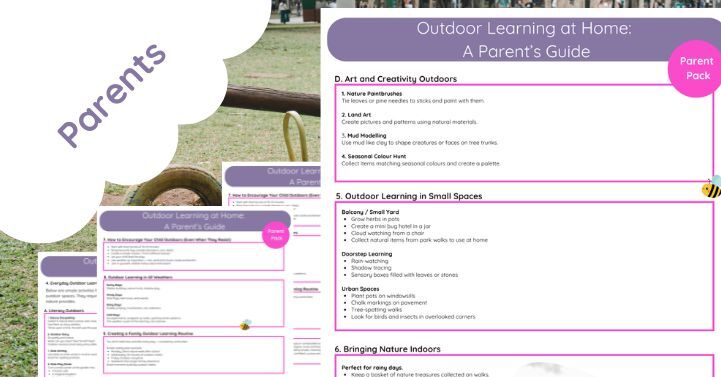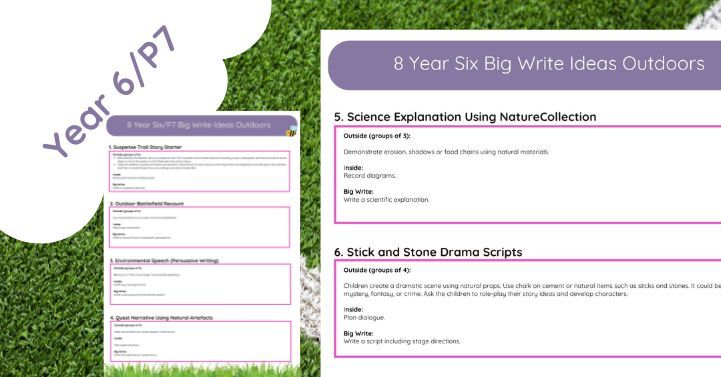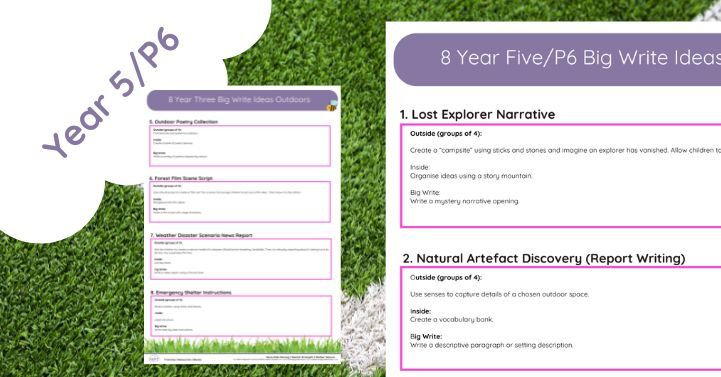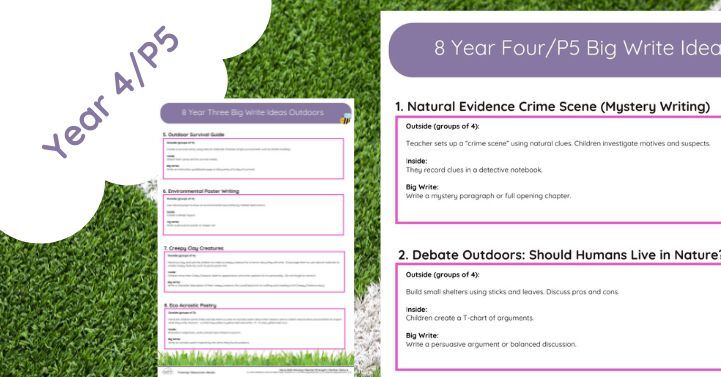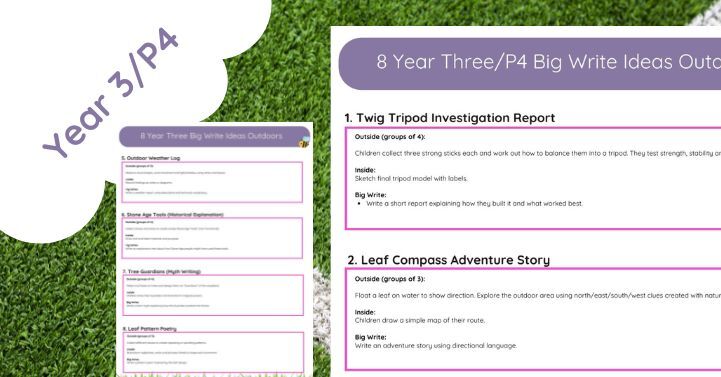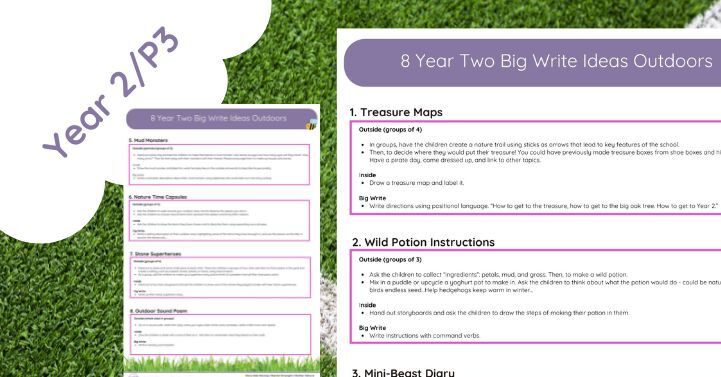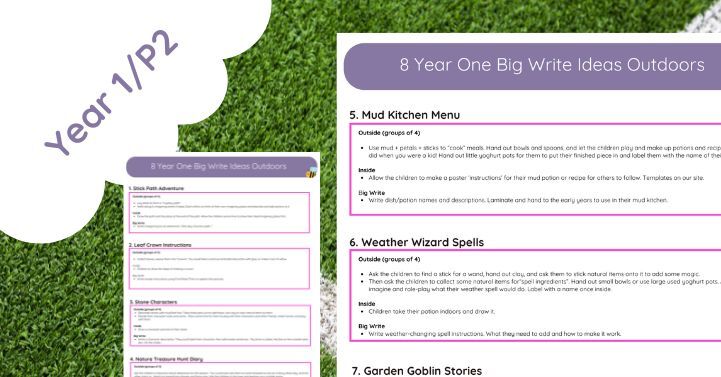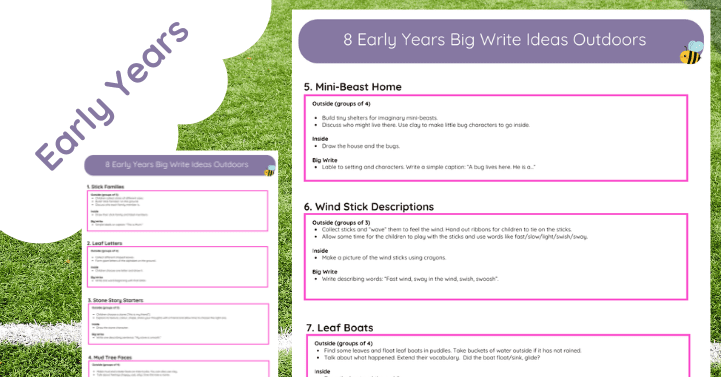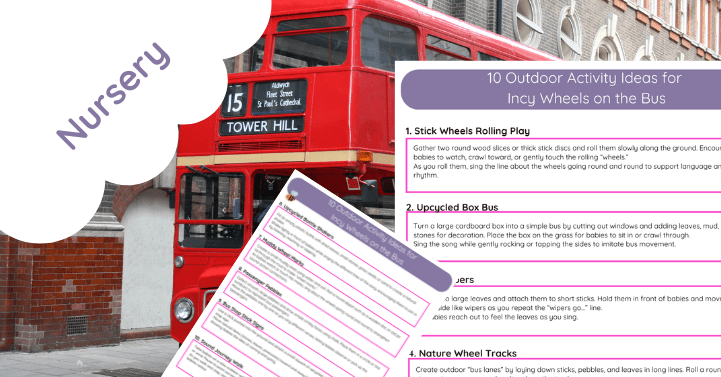Empower KS2 students to embrace kindness, empathy, and inclusion with our KS2 Anti-Bullying Week Ideas Pack, inspired by the Muddy Puddle Teacher (MPT) Approach. This unique resource takes anti-bullying concepts outdoors, allowing students to engage in meaningful, nature-based activities that foster positive social interactions, self-awareness, and teamwork. Each activity is carefully crafted to help students connect with each other and build a supportive, respectful community.
What’s Inside:
- Empathy-Building Activities: Activities like the “Empathy Circle with Nature Objects” encourage students to share and listen to each other’s stories, promoting a culture of understanding and respect.
- Teamwork and Trust Exercises: Outdoor challenges such as the “Friendship Trust Walk” build mutual trust and cooperation, helping students experience the importance of working together and supporting one another.
- Personal Responsibility and Commitment: The “Anti-Bullying Pledge Path” allows children to pledge to kindness and inclusion, reinforcing their commitment to creating a positive environment.
- Creative Expression of Kindness: Engaging projects like the “Kindness Mandala” allow students to collaborate on a meaningful art piece that celebrates kindness and unity.
- Easy-to-Set-Up Outdoor Activities: All activities use natural materials, making them quick and adaptable for various outdoor spaces and group sizes.
Why Choose This Pack?
Our KS2 Anti-Bullying Week Ideas Pack, Using the MPT Approach, provides educators with innovative tools to teach anti-bullying values in a natural, engaging setting. By encouraging hands-on, outdoor learning, this pack brings empathy, respect, and teamwork to life, helping students understand the importance of kindness and inclusion in a memorable and impactful way. Ideal for Anti-Bullying Week or any time you want to reinforce positive social skills, this pack empowers students to create a safe, supportive community in the classroom and beyond.
The Importance of Connecting with Nature for Anti-Bullying Week in KS2
Anti-Bullying Week is an essential time for children to learn about the values of kindness, empathy, and inclusion. These lessons are critical for Key Stage 2 students as they navigate social relationships and develop their sense of self. Taking these lessons outdoors and connecting them to nature can make them even more impactful, as nature provides a calming, engaging setting that encourages emotional awareness, cooperation, and a deeper sense of connection.
Here’s why incorporating nature into Anti-Bullying Week is so important for KS2 and how it can help create a lasting foundation of respect and kindness.
Why Take Anti-Bullying Activities Outdoors?
1. Nature Promotes Calm and Reduces Stress
Spending time in nature has been shown to reduce stress, making students feel more open and receptive to learning about emotions and relationships. According to the Mental Health Foundation, nature helps to calm the mind, creating a supportive environment where children feel safe and relaxed. This sense of calm can be essential for discussing sensitive topics like bullying, allowing children to process emotions in a soothing environment.
2. Outdoor Learning Encourages Emotional Awareness
Learning about emotions and empathy outdoors creates a sensory-rich experience that enhances emotional understanding. Nature provides many opportunities for reflection, which helps children recognize and manage their feelings in a positive way. The Greater Good Science Center at UC Berkeley highlights that outdoor learning supports the development of emotional intelligence, which is crucial for understanding empathy and kindness—key lessons in anti-bullying education.
3. Nature Inspires Mindfulness and Focus
Mindfulness is a powerful tool in helping children build empathy, manage their emotions, and focus on the present moment. Being in nature encourages mindfulness naturally; children can tune into the sounds, sights, and textures around them, which creates a grounding effect. Mindful Schools explains that mindfulness enhances self-awareness and empathy, making children more mindful of how their actions impact others.
4. Nature-Based Activities Foster Cooperation and Teamwork
Many outdoor activities require cooperation, such as building structures, solving challenges, or exploring together. These experiences encourage children to support each other and work as a team, reinforcing positive social interactions. According to Play England, outdoor play is one of the best ways for children to learn social skills and teamwork, which are essential for preventing bullying and promoting inclusivity.
5. Outdoor Settings Make Learning More Memorable
Experiences in nature often have a greater impact on memory, making lessons learned outdoors more likely to stick. When children learn about kindness, respect, and empathy through hands-on, outdoor activities, they’re more likely to carry these values into their daily interactions. Natural England explains that nature-based learning fosters a deeper connection with the material, enhancing personal growth and retention.
Outdoor Activities for Anti-Bullying Week in KS2
Here are some engaging outdoor activities to help KS2 students understand and practice anti-bullying values. These activities encourage empathy, teamwork, and a strong sense of community while connecting with nature.
1. Empathy Story Circle
An empathy story circle encourages children to share their experiences and listen to others respectfully. Gather students outdoors, perhaps under a tree or in a circle of logs, where each child can take turns sharing a story about a time they felt hurt, happy, or supported. Nature’s quiet and open setting helps create a safe space for honest sharing and active listening.
- Learning Benefits: Builds empathy, emotional literacy, and listening skills.
- Extension Idea: Use natural objects like stones or leaves as “talking pieces” to encourage children to share their stories one at a time.
Additional Resource: Action for Children offers tools for building emotional literacy, which can enhance this activity.
2. Kindness Rock Garden
Create a kindness rock garden where children can paint positive messages or symbols on rocks. After decorating their rocks, students can place them in a designated area outdoors, creating a “Kindness Garden” as a visible reminder of their commitment to kindness and inclusivity.
- Learning Benefits: Encourages creative expression and reinforces positive messages.
- Extension Idea: Invite students to take turns reading each other’s messages and discussing how kindness makes them feel.
Additional Resource: Outdoor Classroom Day provides ideas for similar outdoor kindness activities.
3. Anti-Bullying Pledge Tree
Designate a tree in the playground or outdoor learning area as the “Pledge Tree.” Give each student a leaf or small piece of biodegradable paper to write a personal anti-bullying pledge, such as “I pledge to be kind” or “I will stand up for my friends.” They can tie their pledges to the tree to symbolise their commitment to a bully-free environment.
- Learning Benefits: Teaches responsibility, accountability, and positive social values.
- Extension Idea: Revisit the Pledge Tree throughout the year to remind students of their commitment to kindness.
Additional Resource: Anti-Bullying Alliance offers ideas and support for creating anti-bullying pledges.


